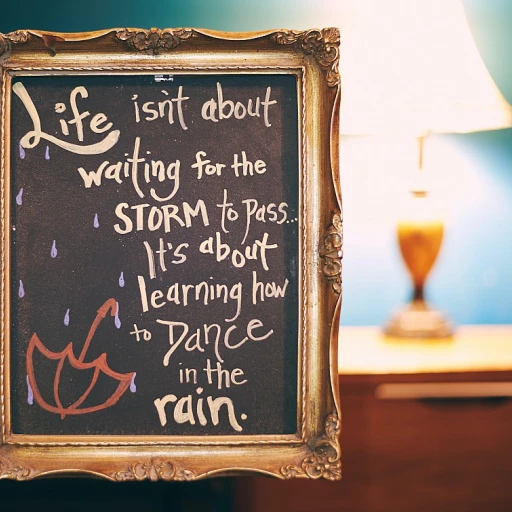Understanding HR Scenario Questions
Grasping the Essence of HR Scenario Questions
HR scenario questions are designed to evaluate how candidates handle specific, often challenging situations in a workplace environment. Unlike general interview questions, these probe your problem-solving skills, decision-making abilities, and how you interact with others in professional settings.
When faced with such questions, it’s essential to demonstrate your capability in resolving real-life job challenges. These questions are an opportunity for you to showcase your competencies and stand out as a strong candidate.
It's important to remember that HR scenario questions can take various forms and may differ in difficulty. Yet, they all share a common goal: to offer insight into your past behavior as a predictor of future performance. Embracing this perspective will help you approach these inquiries with confidence.
For more tips on preparing for these questions, explore our guide on mastering
situational HR interview questions. This will provide a solid foundation to handle these types of queries effectively, setting the stage for success in your next HR job interview.
The STAR Method Explained
Decoding the STAR Method for Success
The STAR method is an effective strategy for structuring your responses to HR scenario questions. Knowing how to use it correctly can elevate your interview performance significantly. Let's break it down:
- Situation: Begin by setting the scene. Provide the necessary context to the interviewer. Describe a specific event or challenge you faced.
- Task: Highlight the task or responsibility associated with the situation. What was your role in addressing the challenge you just outlined?
- Action: Detail the actions you took to tackle the task. This is your opportunity to showcase your problem-solving skills and personal initiative. Be specific about the steps you took.
- Result: Conclude with the outcomes of your actions. What was the result of your approach? Try to quantify the impact, if possible. Explain how this outcome benefited your team or organization.
Implementing the STAR Technique
When preparing your answers, practice structuring them using the STAR framework to ensure clarity and coherence. Use real-life examples that best suit the nature of the questions and match them with the competencies sought by the employer. Incorporating the STAR method will not only help you remain organized during your responses but also enable the interviewers to follow your narrative more effectively.
Next, you'll explore common HR scenario questions to anticipate and ideas for crafting your personalized, convincing responses.
Common HR Scenario Questions
Frequent Situational HR Inquiries
Navigating HR scenario questions requires awareness of the types commonly posed by recruiters. These strategically designed questions test your capability to handle realistic workplace situations effectively. Understanding frequent inquiries can arm you with an advantage during your interview preparation.
- Conflict Resolution: Employers often ask about a time you resolved a conflict at work. They seek insight into your negotiation skills, sensitivity, and ability to maintain professional relationships.
- Handling a Difficult Decision: This question aims to understand your decision-making process, highlighting your discernment between different solutions and weighing potential outcomes.
- Team Collaboration: You may be asked to describe a situation where teamwork was crucial. The focus here is on how you contribute to team dynamics and manage group tasks to achieve common goals.
- Adapting to Change: Organizations value flexibility. Exemplifying how you've successfully adapted to new processes, leadership changes, or industry shifts can demonstrate resilience and a proactive mindset.
- Meeting Tight Deadlines: Discussing a high-pressure situation where time management was critical illuminates your capability to prioritize tasks and thrive under stress.
While these questions are prevalent, each interviewer's approach may differ. Tailoring your responses utilizing the
STAR method can present your experience logically and concisely. Mastery over these commonly asked questions will convincingly portray your competencies and critical thinking abilities to potential employers.
Crafting Your Answers
Developing the Perfect Response
Crafting your answers to HR scenario questions involves showcasing your problem-solving abilities, decision-making skills, and adaptability. It's about painting a picture of how you handle complex situations in the workplace. Remember, the objective is to demonstrate your capabilities through clear and structured responses.
To effectively develop your response, ensure you:
- Identify the Key Components: Carefully analyze the scenario provided and identify the main issues and objectives. What is the problem at hand, and what outcome is expected? This clarity will serve as the foundation on which to build your response.
- Apply the STAR Method: As discussed in the previous sections, using the STAR (Situation, Task, Action, Result) method is a foolproof way to structure your answer. This method helps you stay organized and ensures you address each vital aspect of the scenario.
- Use Specific Examples: Draw from real-life experiences that align closely with the scenario. Be specific about your actions and contributions. Personalizing your response makes it far more compelling and believable.
- Highlight Relevant Skills: Clearly showcase the skills that were vital in addressing the situation. This might include leadership, communication, or negotiation skills. Tie these competencies back to the job you're applying for to align with the employer’s expectations.
- Reflect on the Outcome: Conclude your response with the outcome of the situation. Highlighting positive results or lessons learned reinforces your ability to derive value from challenging situations.
Practice crafting these responses through sample questions to gain confidence and refine your approach. By honing these skills, you’ll be well-equipped to tackle HR scenario questions with finesse.
Avoiding Common Mistakes
Recognizing Common Pitfalls
When crafting your answers to HR scenario questions, it's important to steer clear of common mistakes that candidates often make. By being aware of these pitfalls, you can ensure your responses are precise, engaging, and effective.
- Overly Vague Responses
- Avoid giving generic or vague answers. HR professionals are looking for specific examples from your experience that illustrate your skills and problem-solving abilities. Make sure your answers are detailed and clearly demonstrate your thought process and actions.
- Ignoring the STAR Method
- The STAR Method (Situation, Task, Action, Result) is crucial for structuring your responses. Neglecting to use this method might lead to disorganized answers that fail to showcase your strengths. Practice the STAR approach to keep your answers concise and focused.
- Failing to Address the "Result"
- Many candidates provide detailed situations and actions but fall short when it comes to the results. Don't forget to mention the outcome of your actions, highlighting the positive impact and any learnings you gained from the experience.
- Talking Too Much or Too Little
- Striking the right balance in your responses is key. Giving too much information can muddle your point, while offering too little can leave HR wanting more. Aim for a well-rounded answer that maintains interest but remains comprehensive.
- Lacking Practice and Preparation
- Scenario questions, like any part of the interview process, benefit from thorough preparation. Practice your answers to different questions to ensure you are comfortable with the format and can naturally apply the STAR Method.
By staying clear of these common mistakes, you'll craft responses that leave a strong impression on potential employers. Remember, practice makes perfect, so take the time to refine your answers and approach every question with confidence.
Practicing with Sample Questions
Enhance Your Skills with Practical Examples
Once you've understood HR scenario questions and the STAR method, as well as crafted thoughtful responses, it's time to work on practicing these skills in a simulated environment.
- Mock Interviews: Joining mock interview sessions can be extremely beneficial. It gives you a taste of real interview environments and allows you to pinpoint areas that need improvement.
- Role-Playing: Invite a friend or family member to conduct a role-playing session focused on HR scenario questions. This practice can help you become more comfortable with delivering your responses naturally.
- Feedback is Key: After each practice session, seek feedback. Constructive criticism can provide you with insights into your strengths and guide you on what areas still need polishing.
Use Technology to Your Advantage
Leverage technology to aid your practice sessions. Record your answers using a smartphone or webcam. Listening or watching your responses allows you to notice any nuances in your speech or body language that could be improved.
Real-time feedback tools and AI-powered interview practice platforms can also simulate an interview setting and provide nuanced feedback, helping you fine-tune your scenarios effectively.
Keep Practicing Regularly
Consistent practice not only builds confidence but ensures that you aren't caught off guard by any question during the actual interview. Make it a habit to run through your scenarios frequently.
Lastly, remember that every interview is a learning experience. Even if things don't go as planned, take every opportunity to reflect and improve. Continuous learning and adaptation are the keys to mastering HR scenario questions.




